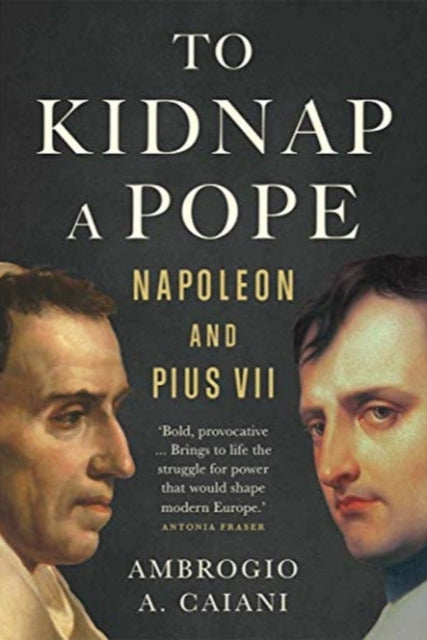Napoleon
The Little Emperor, the nickname for this ruthless dictator, seized power in France after the chaos of the French Revolution and nearly succeeded in conquering all of Europe. This collection of books about Napoleon include Andrew Roberts’ biography of this great historical figure, a look at his love of nature in Napoleon: A Life in Gardens and Shadows and his ultimate downfall at Waterloo. Our favourite story comes from Ambrogio A. Caiani’s To Kidnap a Pope.

Waterloo - Christopher Hibbert
The defining military engagement of the nineteenth century. The epic battle that forever ended one man’s dreams of a European empire unified under his rule. This epoch-defining conflict would ultimately be remembered for the showdown between two of history’s most legendary commanders: the Duke of Wellington, and Napoleon Bonaparte. Divided into three parts, Christopher Hibbert masterfully depicts first Napoleon and his rise to power, then a portrait of Wellington and the allied armies, and lastly the steps leading up to and the battle itself, the final clash on the fields of Waterloo. A gripping, succinct and panoramic survey of this legendary battle, the history surrounding the conflict, and the personalities that defined both the battle itself, and a generation.

Napoleon the Great - Andrew Roberts
Napoleon Bonaparte lived one of the most extraordinary of all human lives. In the space of just twenty years, from October 1795 when as a young artillery captain he cleared the streets of Paris of insurrectionists, to his final defeat at the (horribly mismanaged) battle of Waterloo in June 1815, Napoleon transformed France and Europe. More than any other modern biographer, Andrew Roberts conveys Napoleon's tremendous energy, both physical and intellectual, and the attractiveness of his personality, even to his enemies.

Napoleon: A Life in Gardens and Shadows - Ruth Scurr
Napoleon's gardens range from his childhood olive groves in Corsica, to Josephine's menageries in Paris, to the walled garden of Hougoumont at the battle of Waterloo, and ultimately to St Helena, where he could sit and scan the sea in his final months. In this innovative biography, Ruth Scurr follows the dramatic trajectory of Napoleon's life through the land he cultivated and that offered him retreat from the manifold frustrations of war and politics. Seen through the eyes of those who knew him in the shade of his gardens, Napoleon emerges a giant figure made human - both as the Emperor hunting for glory and the man in an old straw hat, leaning on his spade.

The Passion - Jeanette Winterson
Henri has a passion for Napoleon - but Napoleon has a passion for chicken. As soldier and emperor butcher their way across Europe, glory falls to ruin and love turns to hate. But, when Henri encounters the red-haired, web-footed Villanelle, he discovers in her an equal. Together they abandon their pasts, and flee to the Venetian canals to meet their singular destiny in the city of chance and disguises.

To Kidnap a Pope - Ambrogio A. Caiani
In the wake of the French Revolution, Napoleon Bonaparte, First Consul of France, and Pope Pius VII shared a common goal: to reconcile the church with the state. But while they were able to work together initially, formalising an agreement in 1801, relations between them rapidly deteriorated. In 1809, Napoleon ordered the Pope’s arrest. Ambrogio Caiani provides a pioneering account of the tempestuous relationship between the emperor and his most unyielding opponent.
